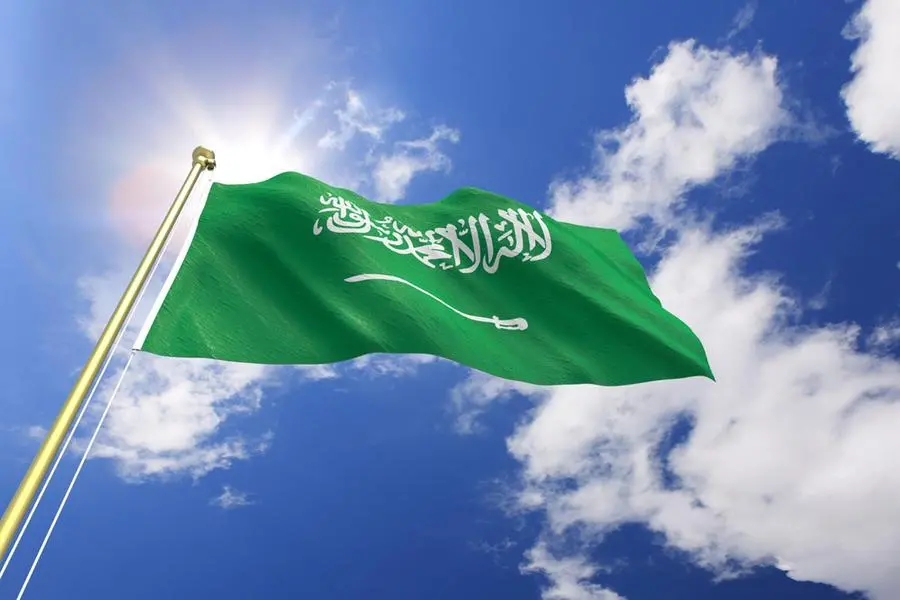PHOTO
JEDDAH - The King Salman Global Academy for Arabic Language (KSGAFAL) issued a book titled "The Arabic Language in the Organisation of Islamic Cooperation" to document the use of Arabic language in this international organisation and its various organs.
The book launch came during the celebration of the World Arabic Day for the Muslim Ummah, organised by the Academy in Jeddah last Thursday, in cooperation with the Organisation of Islamic Cooperation (OIC).
The publishing of this book comes as part of KSGAFAL's initiatives to enable the Arabic language in international organisations, support Arabic translation, and build linguistic policies that strengthen the use of the Arabic language.
These initiatives are based on the vision of the Kingdom of Saudi Arabia to spread Arabic at the global level in service of the language of the Holy Qur'an.
In accordance with this vision, the KSGAFAL held in December 2022, its international conference on "Arabic Language in International Organisations", with the participation and presence of a group of Arab ministers of culture, heads and officials of international organisations, as well as a constellation of scholars, thinkers and Arabic language specialists.
The KSGAFAL's global initiatives included the largest international organisation, the United Nations and its various organs. The KSGAFAL chose the UN headquarters in New York to celebrate World Arabic Language Day 2022 in cooperation with the Permanent Mission of Saudi Arabia to the UN.
The celebration included specialised sessions presented by several prominent linguistic experts on "linguistic and cultural pluralism in the UN," "Translation from and into Arabic at the UN" and the “March of the Arabic language at the UN.”
It also included panel discussions on "Linguistic Management in Social Media", "Arabic Language and the Arts", and "Principles of Translation in International Organisations".
The latest KSGAFAL book dedicated to the OIC is an extension of these qualitative initiatives to promote the use of the Arabic language in this organisation, which is the collective voice of 57 Islamic countries and one of the largest intergovernmental organisations.
Introducing the book, Dr. Abdullah Al-Washmi, KSGAFAL Secretary-General, affirmed that the edition comes within the efforts of Saudi Arabia to support the presence of the Arabic language in the OIC and its organs in order to advance their mission in promoting joint Islamic action in various fields."
"The book is intended to be a reference for everything related to strengthening the presence of the Arabic language in the OIC," Al-Washmi said.
The OIC Secretary-General, Hissein Brahim Taha, confirmed in his forward to the book that it reflects the reality of the Arabic language in the organisation and the knowledge and cultural enrichment it has contributed, calling for greater efforts to enhance the presence of this rich and creative language in international forums.
The book included a number of studies to survey and analyse the use of the Arabic language in the OIC, taking into consideration that the Arabic language is one of the three official languages of the organisation, along with English and French.
In his study "The Arabic Language in International Organisations: The Organisation of Islamic Cooperation as a Model; Reality and Prospects," the Saudi Permanent Representative to the OIC, Dr. Saleh bin Hamad Al-Suhaibani addressed the situation of Arabic in the organisation and its various organs, whether in relation to official documents and digital platforms or the initiatives undertaken by the organisation and its institutions to support the use of Arabic and promote its spread.
In his study on "Arabic language in UNA and its member agencies: survey and analysis", the Acting Director-General of the Union of OIC News Agencies (UNA), Muhammad bin Abd Rabbo Al-Yami, presented detailed documentation of the presence of Arabic in UNA's activities and the Union's contributions to promoting the use of Arabic in the OIC Member States.
Al-Yami's study also included a comprehensive review of the use of the Arabic language in the member news agencies (57 official agencies), in terms of content sources, writing challenges and the media used in its presentation, and linguistic issues related to editing and translation.
In his study "The Arabic Language in the Organisation of Islamic Cooperation," Dr. Hisham Khogali discussed the status of the Arabic language in international organisations, whether in the UN or in the OIC and the need to distinguish between the official language and working language in the terminology of international organisations.
Dr. Khogali traced the uses of Arabic in the OIC and its organs in detail through the organisation's internal and external documents, the Secretary General's speeches, the content of websites, and conferences and events.
Dr. Majdi Haj Ibrahim addressed the "Presence of the Arabic Language in the Islamic World Educational and Cultural Organisation - ISESCO". He reviewed the organisation's efforts in holding many conferences, seminars and training courses in teaching the Arabic language as well as issuing books, scientific journals and Arabic translations. Ibrahim also touched on ISESCO's projects to serve Arabic, such as the "Writing the Languages of Islamic Peoples in the Qur'anic Letter" project and the establishment of several university chairs. He presented recommendations and proposals to enhance the presence of the Arabic language in international organisations.
The book included a brief paper submitted by the Islamic Development Bank Group to introduce the efforts made by the Bank to support the Arabic language.
In a paper on the Arabic language in the OIC States Broadcasting Union (OSBU), the President of the Union, Dr. Amr Ellissy, reviewed OSBU's initiatives in preserving the Arabic language in the media.
Ellissy also touched on the media language and the role of globalisation in opening up languages to one another, referring to the role of journalism in preserving the language.





















